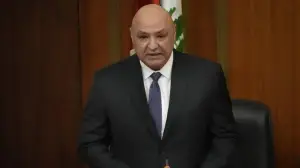Iran's parliament has confirmed Ali Madanizadeh as the country's new Minister of Economy and Finance, tasking the 43-year-old with stabilizing an economy devastated by sanctions, inflation, and ongoing conflict with Israel.
Madanizadeh received strong backing in Monday's parliamentary vote, securing 171 votes in favor, with 61 against and eight abstentions, according to Iranian state television. He replaces Abdolnaser Hemmati, who was removed following a no-confidence vote earlier this year amid growing public dissatisfaction over worsening economic conditions.
Economic Challenges Amid Regional Conflict
The appointment comes at a critical moment for Iran, whose economy remains in deep crisis, plagued by soaring inflation, a plummeting national currency, and prolonged isolation due to sweeping U.S. sanctions. The situation has deteriorated further as violent escalation with Israel threatens to destabilize the entire region.
Since Friday, Israel has launched large-scale military operations inside Iran, targeting military bases, suspected nuclear facilities, and urban areas. Iranian officials report at least 224 people killed, including high-ranking military officers, nuclear scientists, and civilians.
Iran has responded with retaliatory drone and missile strikes on Israeli territory, reportedly killing at least 24 people, according to data from the Israeli prime minister's office.
A Daunting Task Ahead
Madanizadeh steps into the economic leadership role during one of Iran's most perilous periods in recent history. He faces the dual challenge of restoring internal confidence while navigating an increasingly hostile external environment.
In his address to parliament, Madanizadeh vowed to "restore economic stability, protect Iranian livelihoods, and resist external economic warfare."
Economic analysts suggest Madanizadeh's appointment reflects the government's attempt to bring fresh perspectives to Iran's financial challenges, though many question whether meaningful economic reforms are possible while the country remains engaged in regional conflict.
For Nigerian businesses with interests in the Middle East, the ongoing instability presents significant challenges for trade and investment planning in the region.
Follow BenriNews for more updates on this developing story.
Stay connected with BenriNews for the latest updates:













